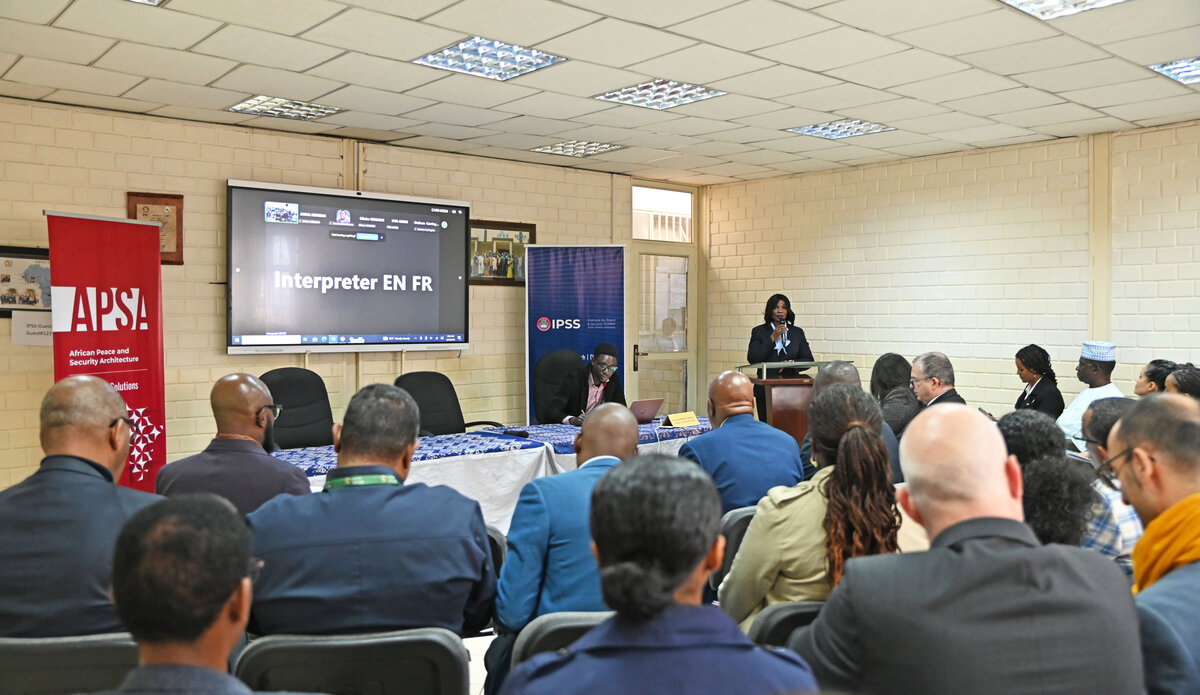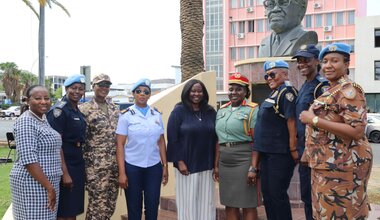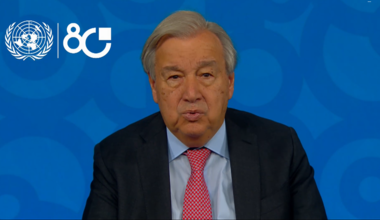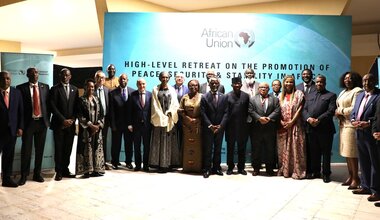UNOAU participates in first session of APSA policy dialogue series: Emboldening APSA for Africans: Early Warning and Conflict Prevention Findings and Lessons
On August 30, the Institute for Peace and Security Studies (IPSS) hosted the first in a series of policy dialogues focused on the African Peace and Security Architecture (APSA) titled “Emboldening APSA for Africans: Early Warning and Conflict Prevention Findings and Lessons.”
In 2024, IPSS released two reports assessing the impact of APSA—one covering the years 2021-2022 and another for 2023. These studies adopt a lessons-learned and forward-looking approach, providing a foundation for the dialogue series. The research is part of a three-year program (2023-2025) supported by the African Union (AU), the United Nations (UN), and the World Bank (WB), with partial funding from the UK Foreign, Commonwealth & Development Office (FCDO). The program aims to enhance the AU's capacity to prevent and mitigate conflicts at both national and regional levels, focusing on Disarmament, Demobilization, and Reintegration (DDR) as well as human rights.
The inaugural APSA Dialogue brought together around 40 participants, including representatives from the AU's Political Affairs, Peace and Security Department, RECs/RMs, African Youth Ambassadors for Peace, the UN Office to the African Union (UNOAU), UNESCO, the Office of the High Commissioner for Human Rights (OHCHR), the World Bank Group, AU member states, and various diplomats, practitioners, analysts, academics, civil society, and intergovernmental organizations based in Addis Ababa.
The session opened with remarks from Lettie Tembo Longwe, the Interim Director of APSA and Head of the Tana Forum Secretariat. She emphasized that APSA is vital for Africa's peace and stability roadmap and plays a key role in conflict resolution. Olivier Mukarji, a Senior Advisor at the World Bank, highlighted the importance of collaboration among the UN, AU, and WB in the areas of DDR, conflict prevention, and human rights. He stressed that effective conflict prevention requires breaking down silos between organizations.
Following the opening remarks, a panel discussion took place, featuring experts from IPSS, IGAD, SADC, and the Kofi Annan International Peacekeeping Training Centre. The dialogue aimed to analyze the key findings and lessons from both reports, specifically regarding Early Warning and Conflict Prevention. Participants worked on developing recommendations for policymakers and peace and security analysts, focusing on enhancing early warning systems to better support APSA. The main outcomes included improved policy understanding, more effective early warning systems, and strengthened collaboration among stakeholders.
 UN
UN






